"YOU'RE CAPABLE OF MORE THAN YOU IMAGINE"
Featured
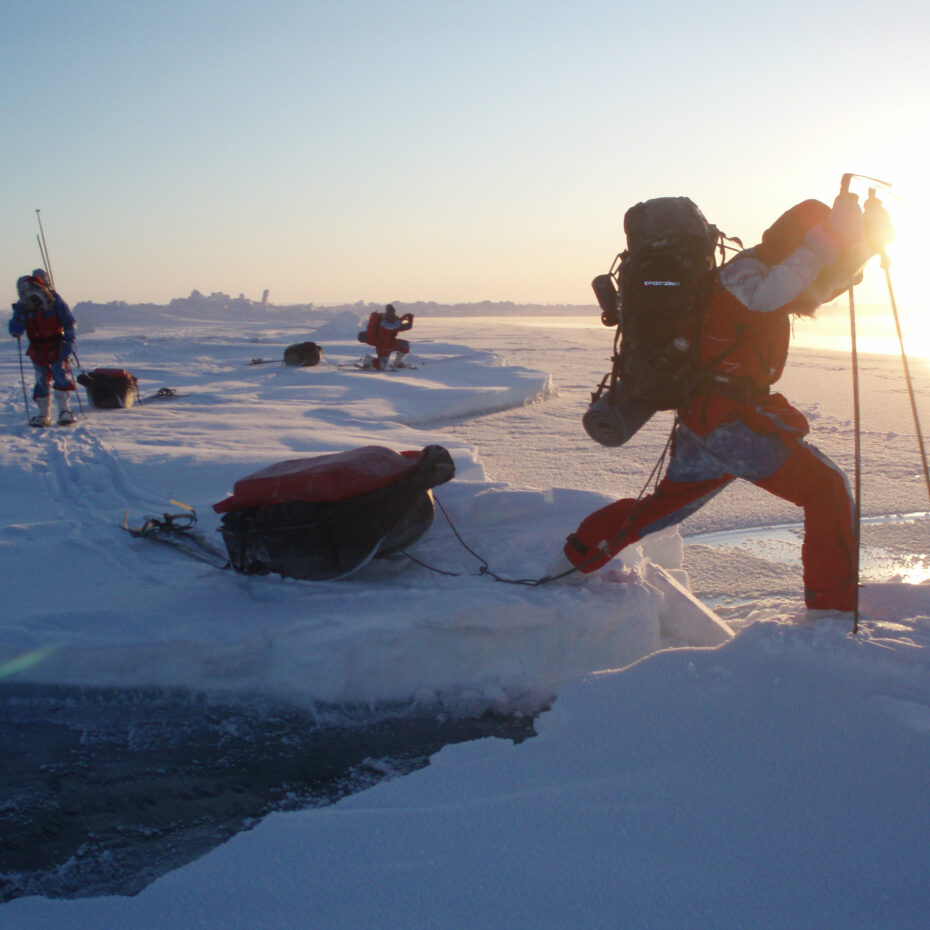
Featured
January 10, 2021 | The North Pole
“It was always kind of in the back of my mind,” Tessum Weber says about skiing to the North Pole. “It was what we grew up talking about at the dinner table. It was just normal dinner table conversation.”
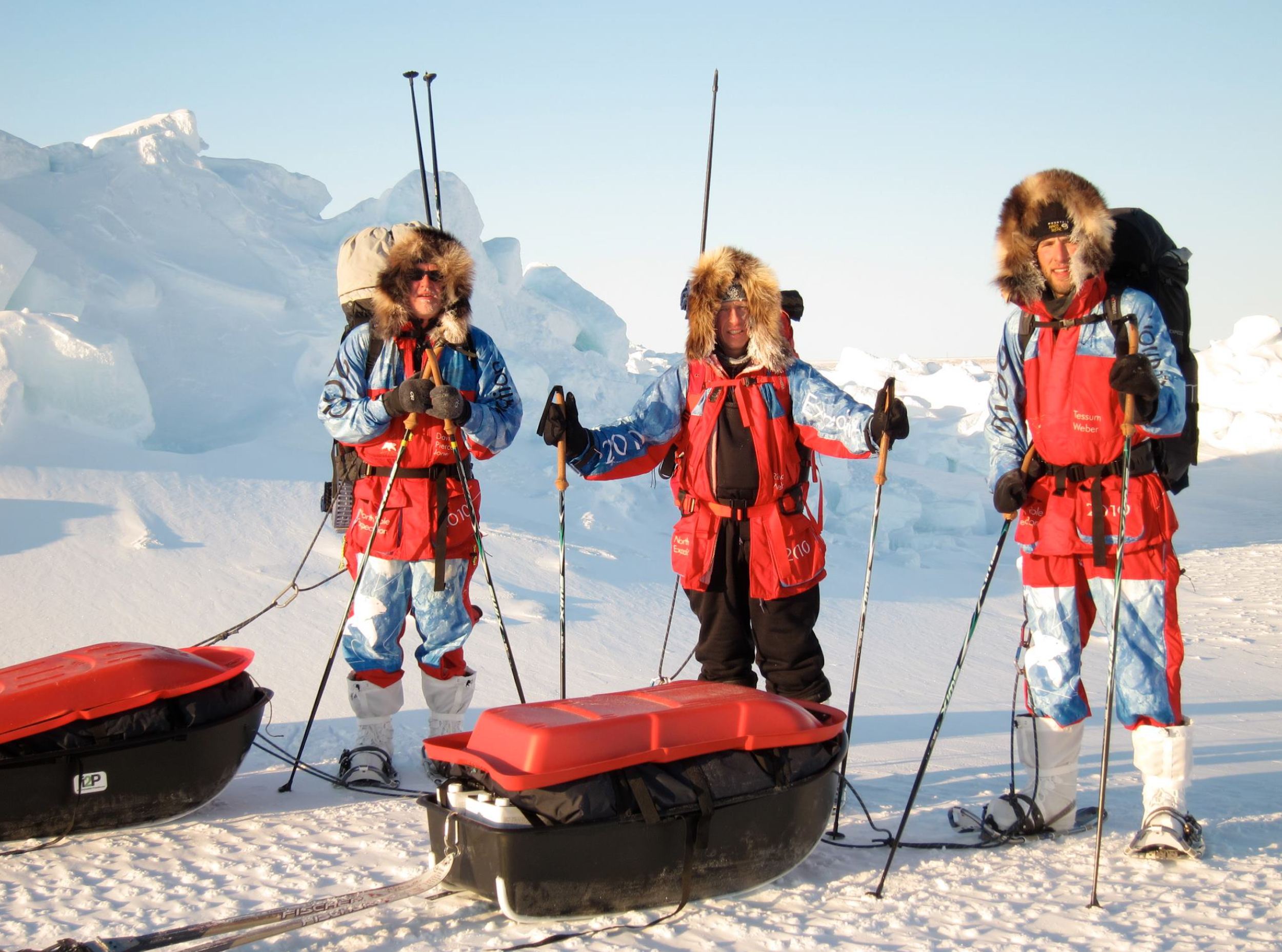
The right moment to move the notion to the front of his mind arrived in 2009, when Tessum was nineteen. “I was a tiny bit lost,” he says, “and I needed a challenge.” After a decade competing as a nationally ranked cross-country ski racer, he’d come to the realization that he’d reached the end of that particular road. Right around the same time, he also realized he might not have paid quite enough attention to his studies. When his application to the University of Ottawa’s business program was rejected, Tessum responded by calling up the dean and asking for a meeting. “I put on a shirt and tie and marched over and made my case,” he says. Amused but also impressed, the dean admitted Tessum on probation. Tessum thanked him and then immediately asked for a semester off to ski to the North Pole. Fortunately, the startled dean agreed.
For his part, Tessum’s father Richard hadn’t been sure he wanted to guide the North Pole anymore. Climate change was making ice conditions much less reliable, and, after all, he’d already skied to the pole from land six times, not to mention the eight Last Degree expeditions he’d guided, where participants ski the roughly 100 kilometers of the final degree of latitude. But, right when the timing was coming right for Tessum, Richard had two well-qualified clients eager to undertake the challenge, and the opportunity to repeat the polar journey one last time with his son proved irresistible. “I thought it would be super cool to do it with him,” Richard says. “If he hadn’t been there, maybe I wouldn’t have.”
In March of 2010, as the polar dawn was just beginning to lift the winter darkness, a turboprop DC-3 carried Richard, Tessum (now a ripe old 20), and the two other members of their team from Resolute Bay to the top of Ellesmere Island, 83 degrees north, from where they would ski out over the frozen ocean. “You get out of the plane, and everything goes dead quiet,” Tessum says. “And it’s really cold. The coldest I’d ever experienced. Like bone-numbingly cold. And this is a Weber saying it’s cold.” (For those looking to annotate their thermometers, Weber cold starts in the range of 50 or 60 degrees below zero.)
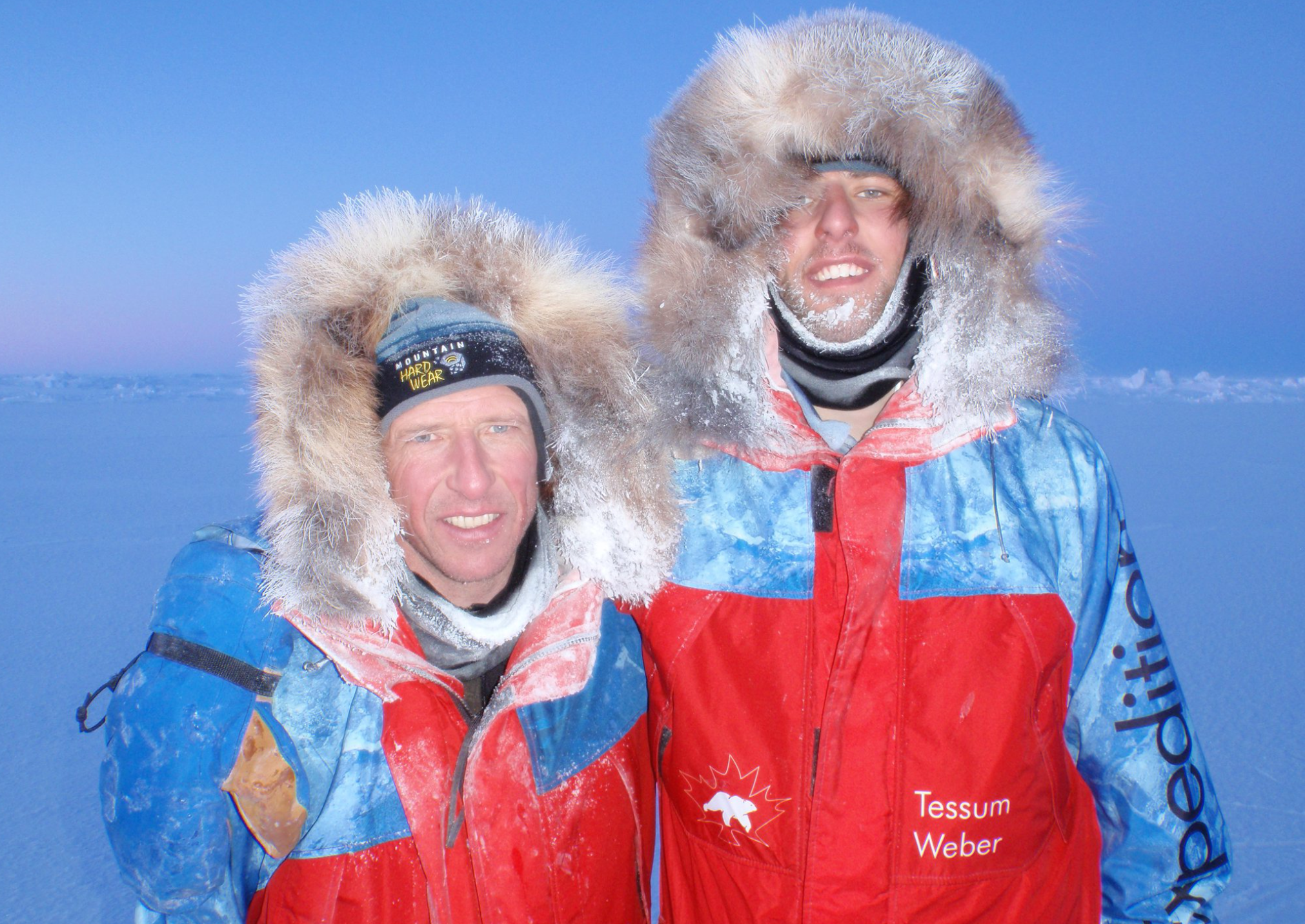
While the grueling training necessary for Tessum’s ski racing had forged him into excellent physical shape, he still found himself overwhelmed by the difficulty of the expedition’s early days. “I was used to working very, very hard,” he says, “but this was far harder than anything I’d ever done. Every day for the first two weeks, I wanted to quit. It’s like being in a Gulag. For humans to survive and thrive in this environment—it’s shocking.” Grinding and clambering and dragging a two-hundred pound sled over a relentless, indifferent, unchanging landscape of broken ice and bone-dry snow that dragged like sand, in cold so intense he couldn’t even stop for a cup of tea, Tessum found himself quickly demoralized. “The mountains get smaller and smaller, and then you’re out in the middle of the ocean, and there’s nothing,” he says.
“When you get there,” Richard says, “it’s such a shock. You can try to prepare people all you want, but nothing can really prepare you for getting dropped off. Those first days are what destroy 90% of expeditions. It’s twilight. It’s colder than you can imagine. You’re like, oh my god, what did I just do? It’s to be expected.” And his expectations for Tessum? “I thought he could do it. I knew he’d find it tough, but that’s okay. It is tough.”
For Tessum, one key to finding reserves of endurance even deeper than those he’d relied on as an athlete was to think less. “You can’t think about the whole thing because it’s so hard and so long. You have to take it one day at a time. You have to turn your brain off.” This was survival mode, a relentless grind of forward motion (that ocean currents under the ice could easily turn into backward motion) that necessitated moving for twelve hours a day and consuming between seven and ten thousand calories. Tessum found himself working harder than he’d thought possible.
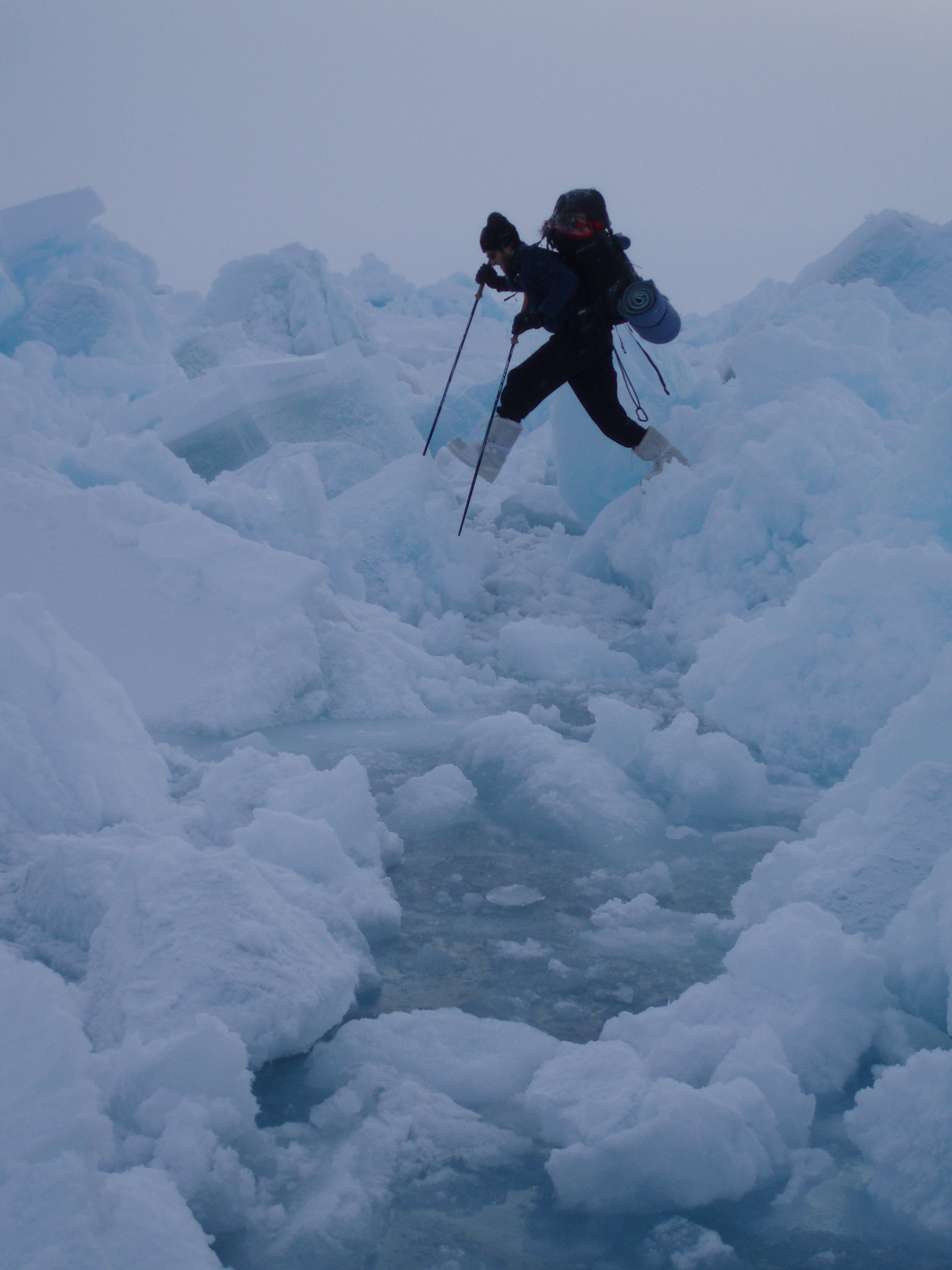
“It sounds a bit cliché,” he says, “but taking a moment to appreciate the smallest things was important.” Some pleasures were modest but dependable: for example, the exceptionally warm wolverine fur hat made by his mother that Tessum slept in or the Weber cocktail, a concoction of whiskey, maple syrup, whole milk powder, and hot water that took the edge off after long, frostnipped days falling through slush and struggling to cross lead after lead of open water. Other moments of appreciation arrived unexpectedly, as when Tessum emerged from the tent exhausted and depressed only to find himself awestruck by the sight of the sky balanced between total darkness on one edge of the horizon and daylight on the other. How many other people had seen a sight like this, he wondered? How many had been at such an impossibly remote place at just the right time?
But what Tessum thinks changed him the most was his growing understanding of the importance of approaching a situation calmly and breaking it down in a rational process of problem solving, a practice modeled by his parents throughout his life but now put on especially spectacular display by Richard. Tessum remembers a day early on when they came to a daunting pressure ridge that Tessum thought would take days to get through. Richard navigated them across in just a few hours. “Every day there would be one of these events,” Tessum says. “My appreciation for my dad’s ability to thrive in these environments became a really deep respect.”
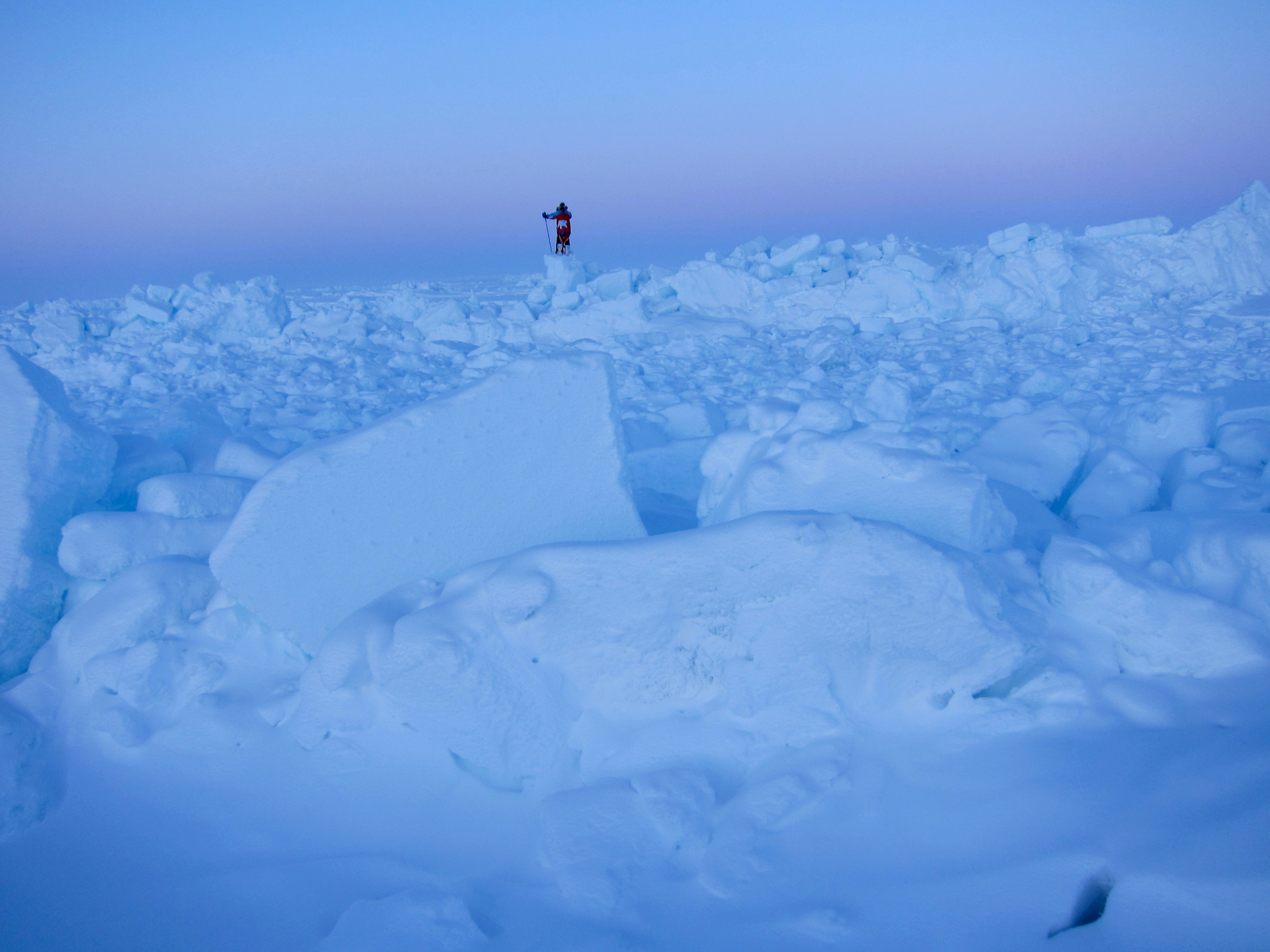
For Richard, few revelations were left to be had. “From my point of view,” he says, “the whole expedition was more of the same, except for the climate change, which was pretty astounding. But it was fun having Tessum there because I could talk to him and I could rely on him. He did amazing.” Only one regret lingers: that by the time Tessum’s younger brother Nansen was old enough to go, conditions had become impossible. “It’s a shame because I think Nansen would be really good at it,” he says.
To keep going, Tessum found his body going into a new, hyper-efficient survival mode. He grew accustomed to skiing for ninety minutes, stopping for five and a cup of tea, skiing for another hour, stopping for a snack, and on and on and on. He even mastered the skill of recharging with power catnaps whenever the opportunity presented itself. “You close your eyes, and you’re out cold,” he says, “but you become very aware. The littlest sound would wake you from the deepest sleep. You’d close your eyes for literally five minutes, and you’d wake up feeling like you’d slept for an hour and a half.”
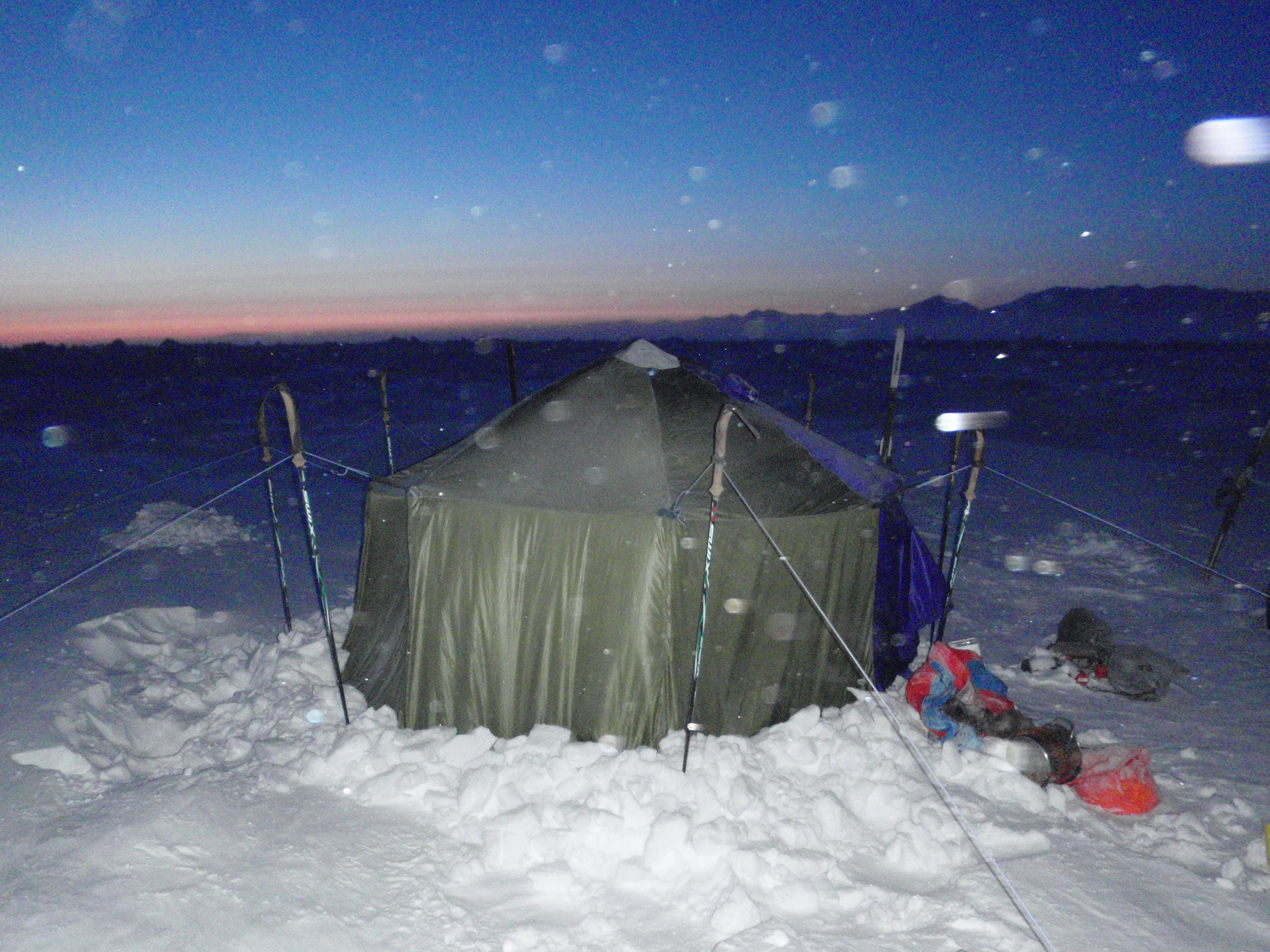
Even though Tessum was adapting to the conditions, the going wasn’t exactly smooth. After twenty-three days, almost out of supplies on the eve of their only scheduled air drop, the group found themselves surrounded by mostly open water. Donning dry suits that promptly started leaking, for four hours they swam across leads in search of an ice pan big enough to serve as a usable target for the drop, breaking a thin film of new ice as they went and pulling the sleds across with ropes. In the morning, a plane buzzed the tent, its noise bringing a thrilling reminder of civilization. But the first parachute didn’t open. “It fell like a bullet right into the ice,” Tessum says. The second parachute half-opened, and the third drafted down nicely as the plane disappeared into the distance. As the dismayed group unpacked their much-needed, highly anticipated supplies, they quickly discovered that a replacement sled had been damaged in the drop and fuel had gotten into the food. Not only that, but there had been an unusual heat wave in Yellowknife, where their stash had been stored unrefrigerated in hangars at the airport, and the calorie-dense, pemmican-like mix of grains, fat, cheese, and meat known as polar paté they relied on had spoiled. “The vac packs were puffed, and it smelled like really, really pungent sauerkraut,” Tessum said.
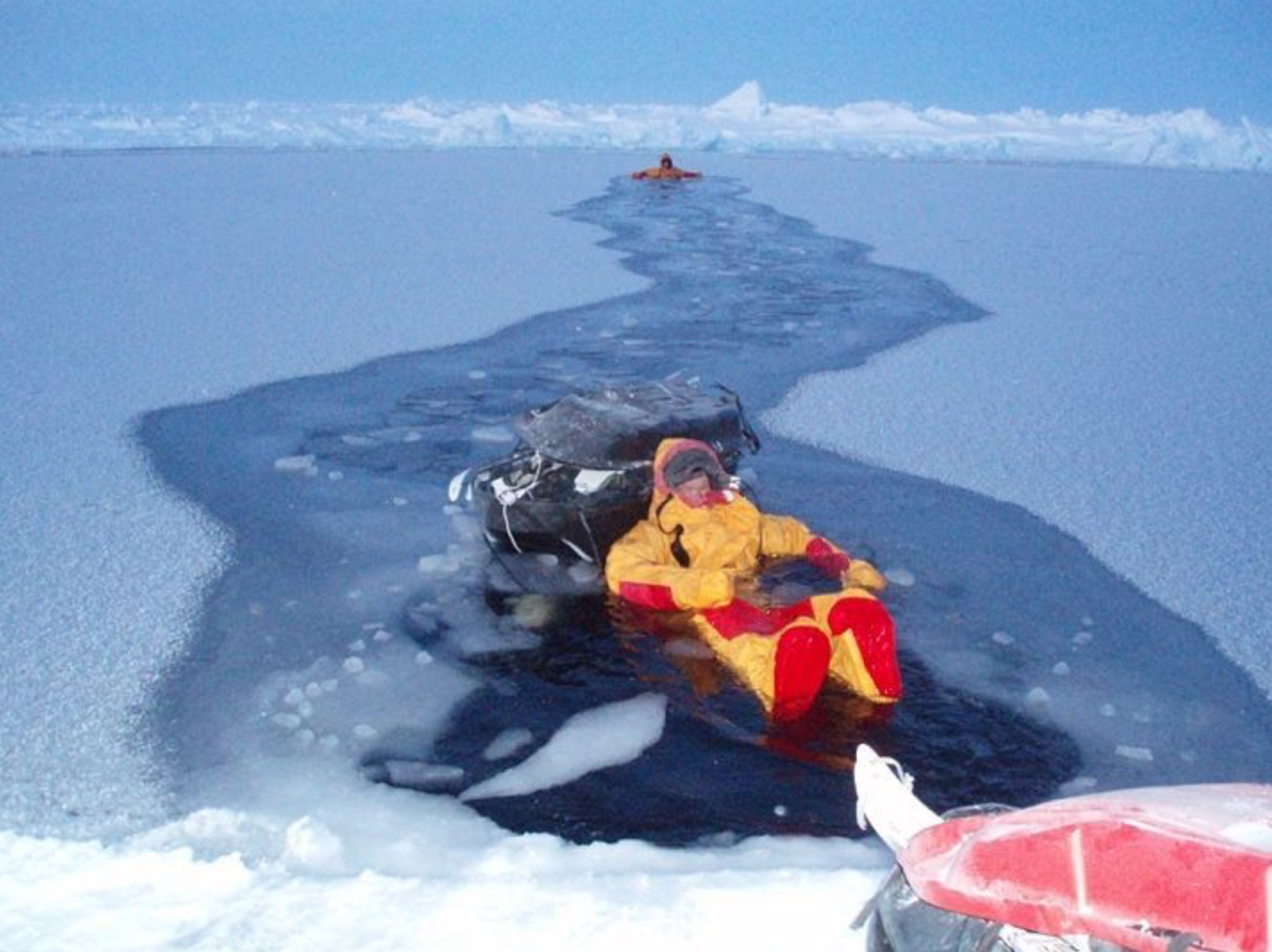
At first it seemed the expedition would have to be abandoned. But upon closer inspection, it turned out some of the food didn’t have that much fuel on it. And a doctor advised via satellite phone that, actually, the paté that smelled the very worst, only the truly stinky portions, should be safe to eat. “Lunch was fuel-covered nuts,” Tessum says. “For a twenty-year-old, it just can’t get any worse. I had a pretty low point then. But either you quit or you keep going.” They kept going. Gradually—mercifully—Tessum’s sense of taste faded away.
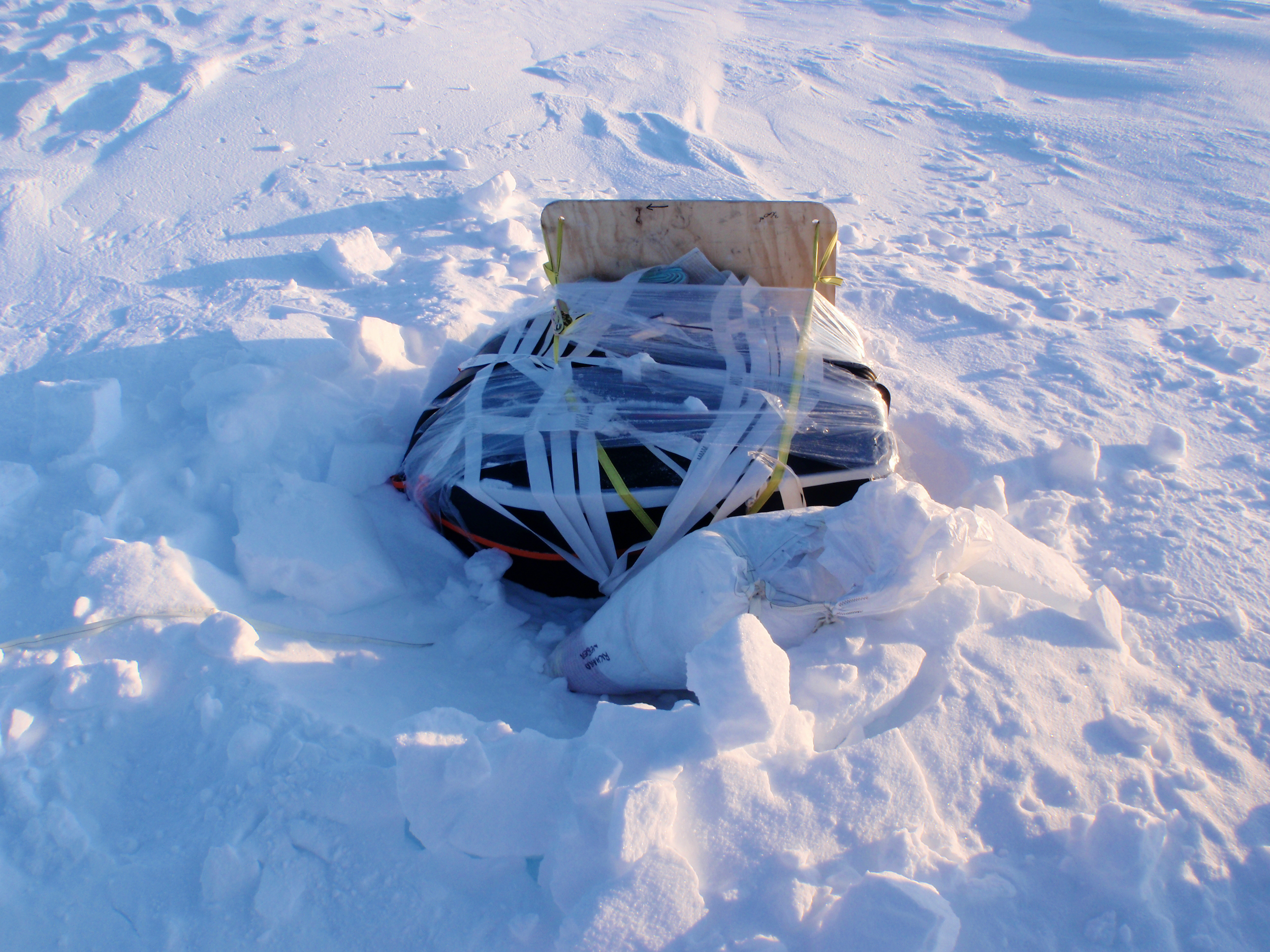
In their last few days on the ice, as a speed record suddenly seemed within reach but the ice was drifting the wrong way, the team only slept three or four hours total. Finally, after 42 days, 18 hours, and 52 minutes, they arrived at the North Pole, breaking a record previously held by Richard and making Tessum the youngest person ever to ski a full length expedition. As they waited for the Russian helicopter that would bring them to the drifting base Barneo, they attempted to snack on a bit of polar paté, but, as Tessum recalls, “All of a sudden we couldn’t eat the food. Once you’re done surviving, your body says you don’t need this anymore.”
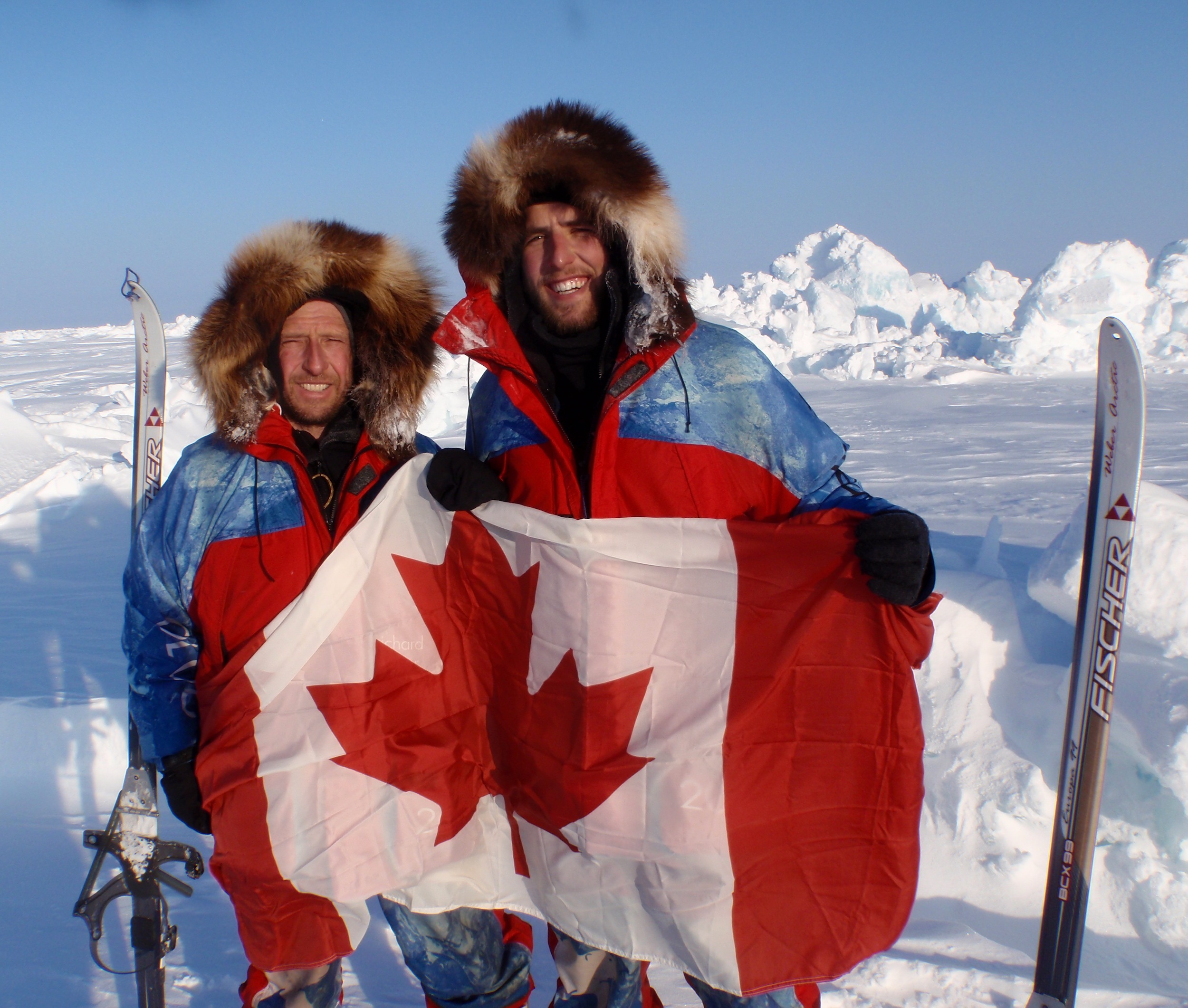
Transported by Antonov jet to Svalbard, the team found themselves drinking champagne at the Radisson, still high in the Arctic but already a world away from the monochromatic rigors and sauerkraut-smelling cuisine of the pole. What they’d accomplished began to sink in. “The sheer magnitude of effort to do this is stunning,” Tessum says. “It’s actually pretty amazing what you’re able to do as a human being. And it was special to have that moment with my dad, to survive everything along the way.”
Now a new parent himself, Tessum has yet another new perspective on those who not only raised him but guided him safely through one of the planet’s most extreme environments: “As a friend said, my dad gets more right every day.”
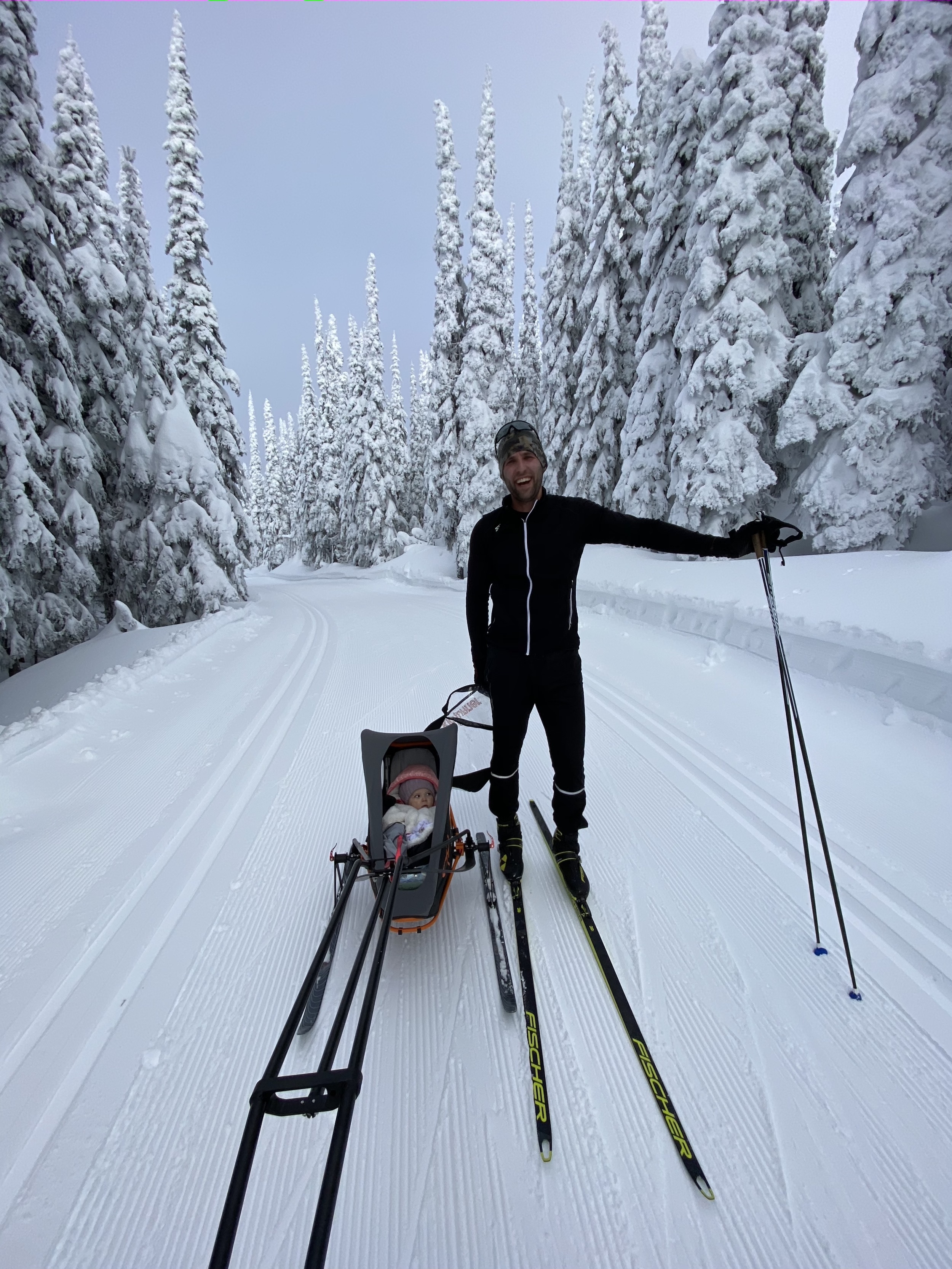
We understand that booking a trip like this is a big endeavour. Please reach out to us with any questions that you might have regarding your upcoming adventure.